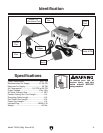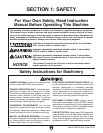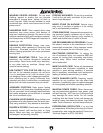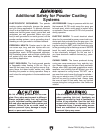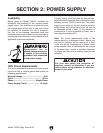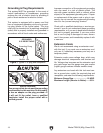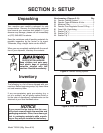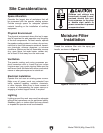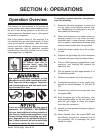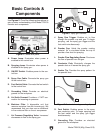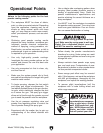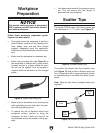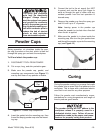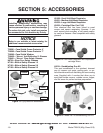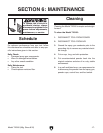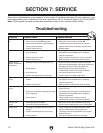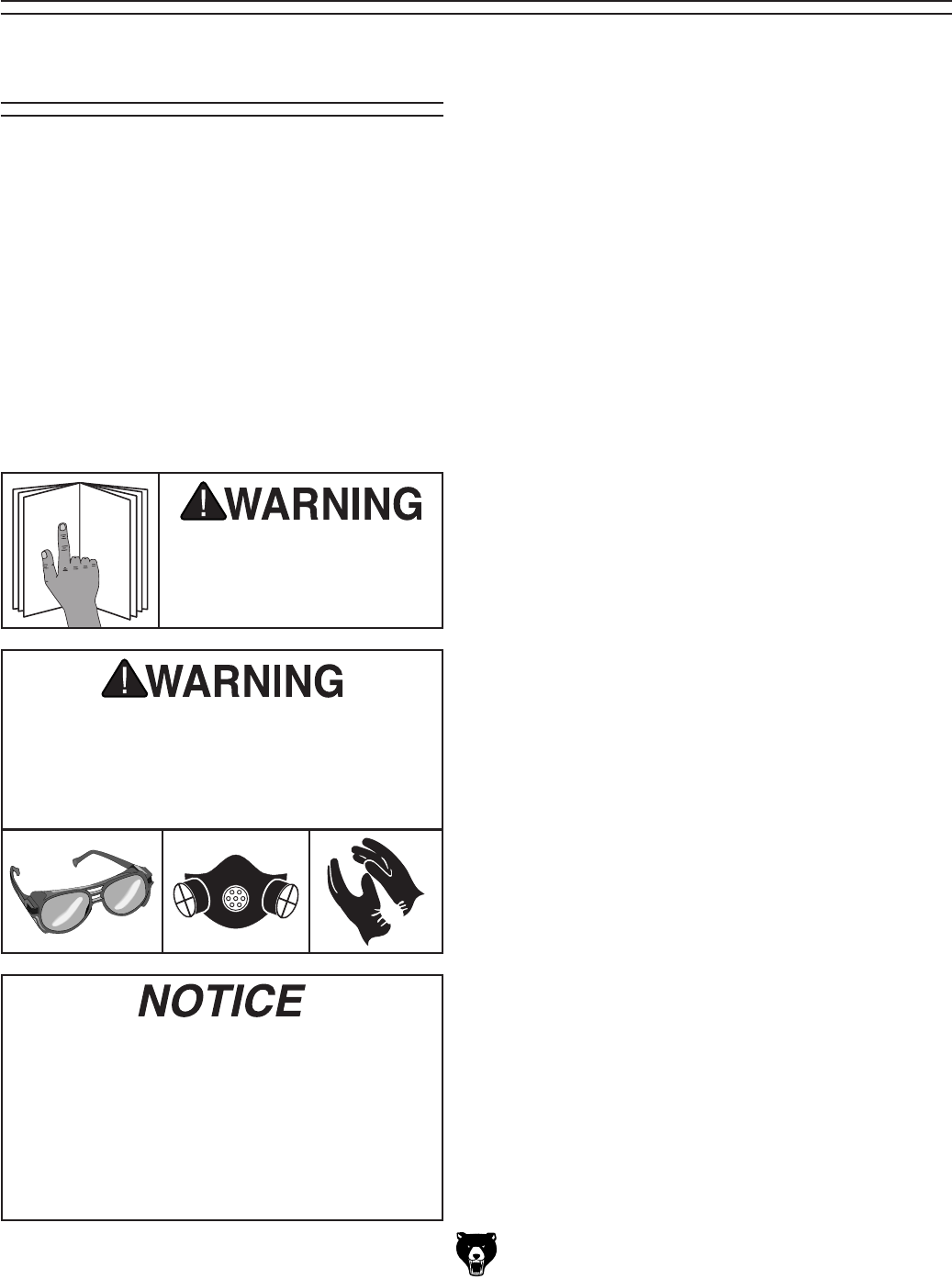
Model T25100 (Mfg. Since 8/12)
-11-
SECTION 4: OPERATIONS
To complete a typical operation, the operator
does the following:
1. Examines the metal workpiece to make sure
it is dry, clean, and suitable for powder coat-
ing. Sandblasting the workpiece is one effi-
cient method of cleaning it.
2. Places the workpiece on a stable surface or
securely hangs it in a dry, clean, and well-
ventilated area. If using a hanger, make sure
that it is made of clean metal and makes good
metal-to-metal contact with the workpiece.
3. Installs the proper scatter tip on the conduc-
tor pole.
4. Attaches the grounding clip to the workpiece
or hanger with good metal-to-metal contact.
5. Puts on ANSI-approved goggles/face mask,
respirator, and clothing that protects the
operator's skin.
6. Fills the powder cup with approximately 2" of
the selected powder.
7. Attaches the powder cup to the spray gun.
8. Connects the spray gun to a dry, clean, pres-
surized air source between 10 PSI and 30
PSI.
9. Connects the control box to power and turns
the system ON.
10. Aims the spray gun at the workpiece, then
simultaneously steps on the foot switch and
pulls the gun trigger to direct the powder
cloud onto the workpiece.
11. Maintain an even powder thickness of approx-
imately 2mm.
12. When finished, turns the system OFF, and
immediately grounds the conductor pole to
the grounding clip to discharge the gun's
electrical charge.
To reduce your risk of
serious injury, read this
entire manual BEFORE
using this tool.
If you are not experienced with this type of
equipment, WE STRONGLY RECOMMEND
that you seek additional training outside of
this manual. Read books/magazines or get
formal training before beginning any proj-
ects. Regardless of the content in this sec-
tion, Grizzly Industrial will not be held liable
for accidents caused by lack of training.
Eye injuries, respiratory problems, or skin
damage can occur while operating this tool.
Wear approved safety goggles, respirator,
non-insulating gloves, and anti-static cloth-
ing to protect your skin.
The purpose of this overview is to provide the
novice operator with a basic understanding of how
the tool is used during operation, so the tool con-
trols/components discussed later in this manual
are easier to understand.
Due to the generic nature of this overview, it is
not intended to be an instructional guide. To learn
more about specific operations, read this entire
manual and seek additional training from expe-
rienced operators, and do additional research
outside of this manual by reading "how to" books,
trade magazines, or websites.
Operation Overview



